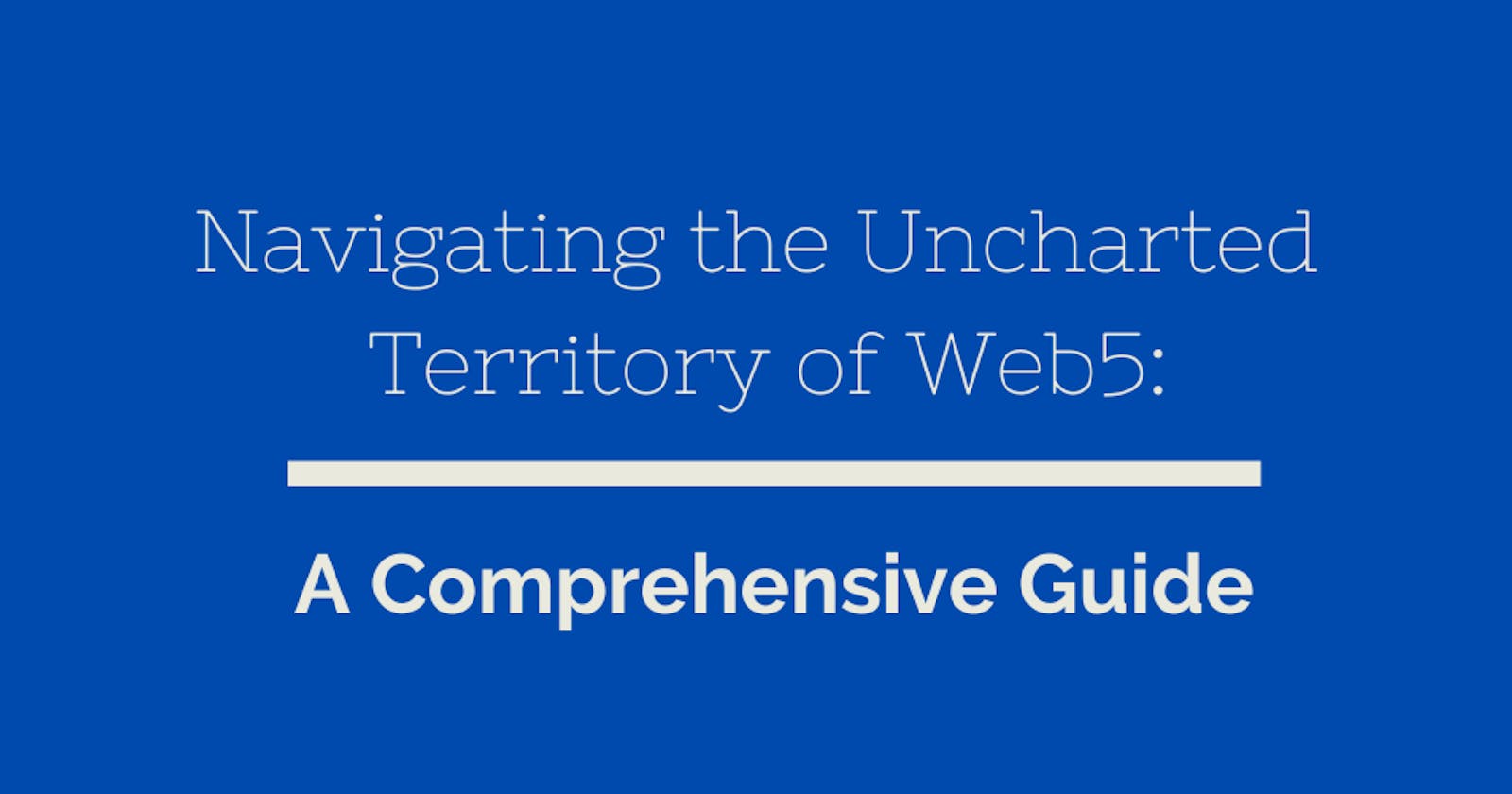Navigating the Uncharted Territory of Web5: A Comprehensive Guide
In the ever-evolving landscape of technology, the concept of Web5 has emerged as a potential game-changer, promising a decentralized, user-centric internet experience. While still in its nascent stages, Web5 has garnered significant attention and sparked discussions about its potential impact on the future of online interactions.
Deciphering the Essence of Web5
Web5, often referred to as the "next phase" of the internet, aims to address the limitations of the current Web2 paradigm, which is characterized by centralized control by large tech companies. The core principles of Web5 revolve around decentralization, self-sovereignty, and enhanced user control over data.
Decentralization: The Cornerstone of Web5
Web5 envisions a decentralized internet where data and applications are not solely controlled by a handful of tech giants. Instead, it proposes a distributed network where users have ownership of their data and the power to choose how it is used and monetized. This decentralized approach aims to foster a more equitable and transparent online environment.
Empowering Users Through Self-Sovereignty
At the heart of Web5 lies the concept of self-sovereignty, empowering users to control and manage their digital identities and assets. This entails providing individuals with secure and verifiable ways to store, manage, and share their data without relying on third-party intermediaries.
Enhanced User Control Over Data
Web5 advocates for a fundamental shift in data ownership and control, moving away from the current model where users relinquish their data to large platforms. Instead, Web5 proposes giving users the ability to determine how their data is used, shared, and monetized.
Potential Impact of Web5
The potential impact of Web5 extends far beyond the realm of technology, influencing various aspects of our lives and society as a whole. Here are some key areas where Web5 could make a significant impact:
Economic Empowerment: Web5 could create new opportunities for individuals to monetize their data and assets, leading to a more inclusive and participatory economy.
Enhanced Security and Privacy: Decentralized protocols and self-sovereign data management could lead to a more secure and privacy-focused online environment.
Empowered Communities: Web5 could foster the growth of online communities driven by shared interests and values, promoting greater collaboration and innovation.
Challenges and Considerations
While the potential benefits of Web5 are substantial, there are also challenges to consider:
Technological Maturity: Web5 technologies are still in their early stages of development, requiring further advancements and standardization.
User Adoption: Widespread adoption of Web5 principles will depend on user understanding, trust, and accessibility.
Regulatory Frameworks: Establishing clear and effective regulatory frameworks will be crucial to ensure the responsible and equitable development of Web5.
Conclusion: A Glimpse into the Future of the Internet
Web5 represents a promising vision for the future of the internet, one that prioritizes user empowerment, decentralization, and data sovereignty. While challenges remain, the potential benefits of Web5 are significant and could reshape the way we interact and engage online. As Web5 technologies mature and adoption grows, we can anticipate a more equitable, secure, and user-centric internet experience.
